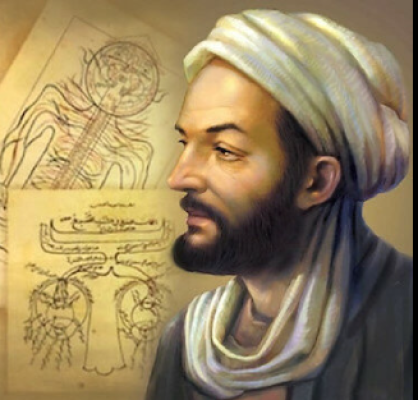Ibn Sina (980–1037 CE), known in the West as Avicenna, was a Persian polymath, physician, and philosopher whose works left a profound impact on both the Islamic world and medieval Europe. Born near Bukhara, in present-day Uzbekistan, he displayed extraordinary intelligence from a young age, mastering the Qur’an and many sciences before his teenage years. By the age of 18, he had gained fame as a skilled physician, and his knowledge extended across diverse fields including philosophy, mathematics, astronomy, and natural sciences.
His most famous work, The Canon of Medicine (Al-Qanun fi al-Tibb), became a standard medical text in both the Islamic world and Europe for centuries, influencing medical education well into the Renaissance. Another of his monumental contributions, The Book of Healing (Kitab al-Shifa), was an encyclopedic work covering philosophy, logic, mathematics, and natural sciences. Ibn Sina’s integration of Aristotelian philosophy with Islamic thought helped shape later Islamic philosophy and provided a bridge to European scholastic traditions.
Ibn Sina’s legacy lies not only in his vast writings but also in his role as a symbol of intellectual brilliance during the Islamic Golden Age. Revered as the "Prince of Physicians," he left behind more than 200 works that continue to be studied for their insights into medicine, philosophy, and science. His enduring influence made him one of the greatest minds in human history, remembered as a pioneer who expanded the boundaries of knowledge and shaped the intellectual heritage of both East and West.


